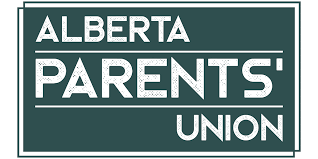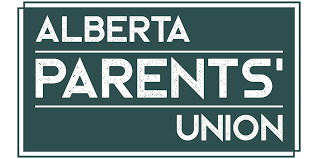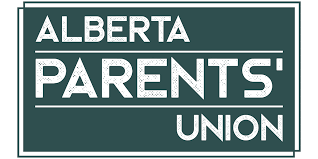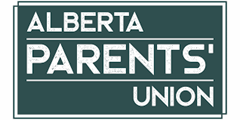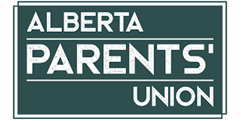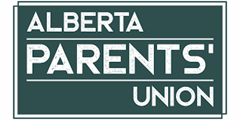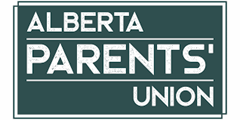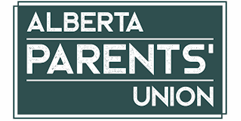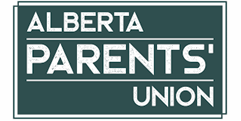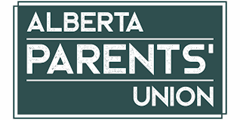Parents across Alberta expect schools to be places of learning - not platforms for political soapboxes.
But last week, an audio recording surfaced of an Alberta teacher using classroom time to mock conservative voters and energy workers.
And, while this might be the only recent recording that's leaked, we all know this isn't the only instance of this kind of thing happening in Alberta schools.
While political topics in the classroom are not inherently inappropriate, this teacher crossed the line by using their authority to push personal political views and portray those who disagree as ignorant, immoral, or beneath serious consideration.
That should concern every parent - no matter their political beliefs.
Teachers have an important role in helping students understand civic life, public debate, and different political ideas.
When handled responsibly, discussions about politics can help students learn critical thinking and respectful disagreement.
But that requires professionalism, balance, and an acknowledgment that no single viewpoint holds a monopoly on truth.
Parents don't object to discussion in the classroom; they object to indoctrination in the classroom.
When educators present their own opinions as fact, dismiss opposing views without understanding them, and ridicule people who hold different beliefs, students are no longer being taught how to think critically.
They are being conditioned to adopt a specific worldview, often without realizing it.
Classrooms deserve educators who can engage students thoughtfully, fairly, and with maturity.
Mocking entire regions of the province or the people who work in key industries undermines trust and deepens division.
Political neutrality, professionalism, and accountability in the classroom are not optional.
Parents must be able to trust that their children are being educated, not influenced behind closed doors.
This situation also raises broader questions about accountability in our education system.
Parents and taxpayers expect teachers to be hired, evaluated, and rewarded based on teaching ability, professionalism, and respect for students and families - not simply ideological conformity.
School boards should have the tools and flexibility to take action when educators break the rules, ensuring classrooms remain safe, fair, and focused on learning.
If this is the kind of education our kids are getting, then the Province needs to make it easier for school boards to fire bad teachers.
Or, worse, these are the kinds of teachers the school boards want in the first place.
It's time to put a stop to political indoctrination in our classrooms.
As 2025 comes to a close, we want to take a moment to look back at everything Alberta parents accomplished this year - and to say thank you.
This year, parents like you reshaped education in Alberta. You pushed for accountability, fought for real school choice, stood up against bureaucratic overreach, and won major victories that will benefit families for years to come.
Every petition signed, email shared, survey completed, donation made, and meeting attended helped build a movement that grew louder, stronger, and more effective every single month.
Below is a month-by-month recap of the year you helped build - and the wins you helped secure.
January: Launching a Year of Accountability
We opened the year by exposing the absurd loophole in the Education Act that required a by-election in a year with a general election already scheduled, after allowing CCSD to go without a needed by-election for two years.
Our campaign - Parents Deserve School Trustee By-elections - put immediate pressure on the system and doubled as a dry run for our trustee survey infrastructure ahead of October’s general elections.
We also brought insights back from the International School Choice and Reform Conference, highlighting how geographical school assignment traps low-income families while strong school choice lifts them up. Our supporters were the first in Alberta to hear about this research.
February: Debunking Myths and Showing How Competition Works
In February, we dismantled several persistent myths about school board accountability. We showed how non-board options - charters, alternative programs, and independent schools - are more responsive to parents than elected boards that often ignore them.
We proved it with the case of Elk Island Public Schools: a school board that suddenly rushed to create a specialized kindergarten program only after a new charter school was announced in the region. Competition works - and we showed Albertans why.
We also continued correcting misinformation about charter schools, especially the ATA’s misleading claims about exclusivity and accountability.
March: A Huge Budget Victory for Families
March brought one of our biggest wins of the year. After we put pressure on them, the government announced the end of the Weighted Moving Average formula - a broken system that delayed funding and punished fast-growing schools.
The new model moves Alberta closer to a money-follows-the-child funding system, something we’ve pushed for relentlessly.
We also fact-checked the ATA’s claims about per-student funding and highlighted how Ottawa was overreaching into provincial education - including federal restrictions hurting First Nations students by limiting school choice options.
April: Teaching the History of School Choice
April marked the 200th birthday of Thomas D’Arcy McGee - Canada’s “Father of School Choice.” This gave us a powerful opportunity to remind Albertans that choice in education isn’t a modern invention; it’s a historic principle meant to protect minority rights.
We pushed for - and achieved! - improvements to Bill 51 to stop school boards from removing elected trustees for political reasons, and we sounded the alarm on federal funding of anti-parent initiatives being pushed into schools without transparency.
May: Pressing Leaders for Answers
When NDP Leader Naheed Nenshi headlined an event for anti-school-choice groups, we immediately challenged him to clarify his position on the rights of parents.
The threat of a teacher strike also emerged, and we dug deep into the mediator’s report to explain why negotiations stalled - and why real competition would help resolve the issue.
Finally, the Province announced consultations on school library content, and we mobilized parents across Alberta to make their voices heard.
June: Parents Overwhelmingly Reject Explicit Materials
June was a month of media battles, survey releases, and more evidence that parents’ concerns were justified.
The government released data from the library consultation, and it confirmed what we had been saying: parents strongly oppose sexually explicit material in school libraries, and parents overwhelmingly support setting reasonable age-appropriateness standards.
Librarians strongly disagreed - and that contrast helped illustrate why a one-size-fits-all school system simply cannot respond to all families.
With a teacher strike looming, we also proposed an Education Continuity Allowance to let funding follow students if schools closed.
July: Training, Community Work, and a Shocking Case of Abuse
In July, we hosted grassroots activism training and carried our message into neighbourhoods across Calgary. We continued pressing Nenshi for clarity on school choice.
We supported Lethbridge’s annual Stuff the Bus campaign and continued speaking publicly about the need for stronger trustees.
Then came the devastating case of Tirtha Mohanta, a non-verbal autistic boy injured in a CBE school. When the CBE’s internal review dismissed the seriousness of what happened, we launched a petition calling for an independent investigation - and thousands of parents joined us.
August: When School Boards Fail, Parents Step Up
August made one thing clear: school boards were falling behind parents’ expectations.
Boards refused to pilot curriculum, avoided addressing cellphone misuse, and allowed central office budgets to grow while classroom resources shrank.
We explained why school choice is the only real path to accountability.
We also dug into the draft Grade 7-9 Social Studies curriculum, helping parents navigate topics ranging from Indigenous history to free trade to the role of Sir John A. Macdonald.
September: Election Momentum and Another Major Win
Ahead of the school board elections, we organized a focus group to ensure that everyday parents - not activists - were represented in trustee coverage.
And as the threat of a teacher strike grew, we achieved an enormous win: the government adopted our Education Continuity Allowance proposal.
The Parent Payment Program ensured parents would receive $30 per child per day of lost instruction - and that unspent funds would follow students instead of staying locked in school board accounts.
We also continued our push for justice in the Tirtha Mohanta case.
October: Giving Parents the Information They Need
October was the month we delivered on one of the biggest commitments we made when the Alberta Parents’ Union was founded: to give parents the clearest, most comprehensive, and most honest information about school board trustee candidates anywhere in Alberta.
This wasn’t a small task - it was a massive undertaking that took hundreds of hours of work from our team.
We surveyed candidates across every school division, analyzed their responses, verified details, organized data, and published it all in a format parents could use quickly and confidently. Every email we sent, every phone call made, and every follow-up reminder to candidates was part of the promise we made on day one:
If parents were expected to vote, we would make sure they had the tools they needed to make an informed choice.
And not only did we keep that promise - but we had more trustee respondents and a more user-friendly page than the ATA!
Our 2025 School Trustee Candidate Survey became the single most detailed, accessible trustee guide available anywhere in Alberta. Thousands of parents used it before heading to the polls. Dozens of candidates told us they were asked about it at the doors. And for the first time, many parents felt they were finally choosing between real ideas - not just names on a ballot.
When Election Day arrived on October 20th, we reminded parents how powerful their vote is in low-turnout elections.
November: Celebrating 30 Years of Charter Success
In November, we published the results of school board elections across Alberta.
Later in the month, we celebrated 30 years of charter schools - and we used the anniversary to highlight a study showing charter students outperform geographically assigned public school students by more than 9 points on Provincial Achievement Tests.
We also continued correcting misinformation about charter enrollment and admissions.
December: Continuing the Work
December may be the final month of the year, but for the Alberta Parents’ Union, it’s never a slow one. While many organizations wind down, we used December to accelerate - reviewing the year’s victories, identifying gaps that still need to be filled, and laying the groundwork for our biggest year yet.
Behind the scenes, our team has been building new research projects, planning next year’s campaigns, strengthening our election-year infrastructure, and preparing the policy, communications, and grassroots strategies we’ll need to keep pushing Alberta toward true school choice and real accountability. We’ve also been meeting with parents, educators, and community leaders to map out the priorities that matter most heading into 2026.
We are ending 2025 stronger than we started - and preparing for an even bigger 2026.
Thank You for Making This Possible
Every victory this year was powered by parents like you.
The 2025 school board trustee elections across Alberta brought both fresh faces and experienced leaders to the forefront of our local education system.
Voters made their voices heard, with many incumbents re-elected and numerous newcomers stepping into these critical roles.
Whether your trustees were acclaimed or won tightly contested races, the results are all now final.
So, take a look below to see what happened in your division!
These trustees will shape the future of our children’s education - and your support can make sure parents have a real voice!
Chip in today to help the Alberta Parents’ Union hold school boards accountable and advocate for policies that truly put students first:
EDMONTON CATHOLIC
Ward 71: Leah Fiorillo
Ward 72: Sandra Palazzo
Ward 73: Kara Pelech
Ward 74: Debbie Engel
Ward 75: Alene Mutala (acclaimed)
Ward 76: Lisa Castell Turchansky
Ward 77: Laura Thibert
EDMONTON PUBLIC
Ward A: Sherri O’Keefe
Ward B: Linda Lindsay
Ward C: Holly Nichol
Ward D: Nickela Anderson
Ward E: Sarah Doll
Ward F: Julie Kusiek
Ward G: Saadiq Sumar
Ward H: Melanie Hoffman
Ward I: Jan Sawyer
The bad news is that teachers have decided to strike.
The good news is that the government has adopted our idea to give money to parents to help out during the strike.
Let's dig into the details:
The Strike
Teachers have overwhelmingly rejected a deal with the Government of Alberta in which the Province seemingly met every demand the Alberta Teachers’ Association (ATA) made to improve classroom conditions.
Both sides of this negotiation are now treating a teacher strike as inevitable.
The ATA has claimed that a strike is no big deal, because teachers are professionals and can catch students up in the event of a learning disruption.
But if that’s true, why are students still suffering from the effects of the COVID school closures on their learning?
The ATA also insisted that they would not strike over wages, but only classroom conditions.
But the Province had already agreed to fund every publicly disclosed proposal related to classroom conditions - including the addition of 3,000 new teachers and at least 1,500 new educational assistants.
Teachers themselves seem to still be concerned about class sizes and classroom complexity, but the ATA is speaking primarily about wages.
So, we appear to be heading into a teacher strike over wages, after all.
This, despite the offer including a 12.5% across-the-board raise for all teachers and a more generous long-service allowance that will increase wages even further for the most experienced teachers.
Parent Payment Program
In response to the strike, the Government of Alberta announced today that they will be implementing a “Parent Payment Program” to help parents respond to their children's needs during the strike.
Eligible parents will be able to register to receive $30 per child per day of labour action.
The payments will be made by e-transfer, starting from October 6th and continuing through the end of any labour action.
To be eligible, children must be:
- Twelve years old or younger
- Enrolled in a public, separate, or francophone school
- A resident of Alberta (as the parent must also be)
The money for these payments will come from per-student instructional grants that go unspent during a teacher strike.
This looks a whole lot like the “Education Continuity Allowance” that we proposed earlier this year!
The Alberta Parents’ Union was the first organization to suggest that unused education money follow the child to help parents in the event of a teacher strike - all the way back on June 11th!
We pointed out, more recently, that this was especially needed, since the strike would take place after the September Count Date that determines so much of educational funding.
This kind of expert knowledge and timely recommendations to the government to help parents is an example of why your support of the Alberta Parents’ Union is so important.
When we can count on parents, grandparents, and taxpayers having our back, we can spend our time innovating ideas to support families that are too good for the government to ignore.
But unlike the Alberta Teachers’ Association, we don’t force anyone to join.
Unlike the ATA, we will never take taxpayer money because you should get to decide whose voice you want to amplify with your money!
Unfortunately, you’re already funding the ATA, while they work to disrupt children’s educations to extract even more money from your pocket.
But today, you can join the tiny team that works the hardest to fight for students and parents:
Working Ahead So Kids Don’t Fall Behind,
The Alberta Teachers’ Association has announced their intention to begin “job action”, otherwise known as a strike, on October 6th - just three and a half weeks from now.
Alberta has not had a full teacher strike since 2002, so many Albertans may not be aware of just how extremely disruptive they can be.
A strike would have a severe impact on students, families, and the economy - especially given such a high proportion of our population in Alberta is school-aged children, more so than any other province.
Academic studies of the impact of teacher strikes have found that they:
- lower immediate test scores,
- increase absenteeism,
- reduce the life-long education students attempt to receive,
- harm life-long earnings for students, and
- hurt immediate earnings for the family of the student.
So, obviously, we are all hoping a strike can be avoided.
But, we also need to tell you something important about the way Alberta’s funding model currently works in relation to this strike, which many other commentators are likely to miss.
In Alberta, September 29th is “September Count Date”.
When we talk about funding following the child to the school of their choice, this is the day that determines how much will follow them!
So, if a work stoppage would prompt you to make other arrangements for your children’s education, you should strongly consider moving your child to that arrangement by September 29th:
- Charter schools are non-union, though you probably cannot find a seat, since they all have long waiting lists already.
- All but one independent (or private) school is also non-union, but many of them are also fully subscribed.
- Reimbursements for home education expenses (and provincial transfers to the supervising school authority) also have a September Count Date of September 29th!
We encourage you to share this information with other parents and inform as many as we can.
We will continue to mention it in major media appearances, as well.
Ultimately, though, we understand that some parents won’t know about the September Count Date, and even more parents won’t want to make alternate arrangements, in hopes that a settlement is reached.
We also hope that will happen!
But if it does not, we need a backup plan.
In the past, we have advocated for a more dynamic funding model that responds to mid-year changes more seamlessly.
And, as you all know, we think funding should always follow the child.
But, during a strike, it’s even more vital that it does.
That’s why we’re calling on the Government of Alberta to introduce a temporary program that would see their child’s share of provincial education funding to follow them to whatever alternative education arrangements parents can make to continue their learning during a strike.
We have called this idea an Education Continuity Allowance.
This allowance could be used towards a school that is open and willing to take the child, towards tutoring, temporary home education materials, an online course, hands-on training in a profession, or any combination of these.
If a student's school is closed, the money should follow that child to any education their family chooses to fill the gaps!
With the money that would already be spent on a given child, families should decide how best to replace the education opportunity torn away from the child by squabbling adults!
If you agree and want to tell the Government of Alberta to introduce these Education Continuity Allowances, please sign the petition to Strike-Proof Alberta Students:
After you've signed, please send it to your friends, family, and every Albertan!
NEW SCHOOL YEAR, NEW CURRICULUM CONFLICTS BREWING
The school year is about to start back and some schools will be piloting a new Social Studies curriculum for Grades 7 through 9.
We were the leading voice for parents when the K-6 Social Studies curriculum was being fiercely debated.
This curriculum promises to generate every bit as much controversy.
We'll give just one section (from Grade 7) as an example.
Then we will link the entire draft curriculum for your feedback at the end of this email.
This is just one section of desired Grade 7 curriculum outcomes.
The quotes are the entirety of one section, in order, and nothing else.
We say this just to emphasize that we did not go hunting for “greatest hits” or even say this section is more important than others.
Consider this a sample to show the kind of thing we expect parents and taxpayers might be interested in from the full document.
“Analyze the impact of expansion west after Confederation on Canada’s economy.”
“Investigate the short-term and long-term consequences of Sir John A. Macdonald’s National Policy on Canada’s economy.”
“Research the contributions of Sir John A. Macdonald.”
Discussion of Canada’s earliest history as a self-determining state is important.
Parents have been clear that this history-rich content is what we want to see.
Still, the heavy focus on Macdonald, to the exclusion (here) of other Fathers of Confederation, is likely to court controversy.
While polls tend to find majorities in support of Macdonald’s legacy, it is increasingly under scrutiny.
In a typical classroom, it is unlikely that Macdonald’s legacy will be discussed without reference to contemporary political conflicts.
“Compare the opportunities and challenges of tariffs and free trade on the Canadian economy.”
Speaking of contemporary political conflicts, it's difficult to name one raging more fiercely than tariffs and free trade.
This curriculum, we can fervently hope, will continue to be relevant beyond this present crisis.
But, in a broader sense, tariffs and free trade have been inherently political topics - and topics that naturally bring feelings about our large neighbour nation - since Confederation and even before.
“Explain gross domestic product.”
While no economic concept can be entirely free from political controversy, this one is foundational to any further economic studies.
Parents were clear that economics is one of the core disciplines of social studies that we expect to see covered in a content-rich curriculum.
Gross domestic product is also core to comparisons between government jurisdictions in other disciplines of social studies.
“Justify the use of taxation and equalization payments.”
This is likely to be controversial, if only because many Albertans do not believe equalization payments can be justified - at least as currently structured.
Of course, justifying the use of taxation is always an ongoing matter of political controversy.
“Explain the crucial role of natural resources in Canada’s economic growth.”
The Alberta Teachers’ Association is likely to object to this clause.
As a reminder, they objected to very similar language in the Grade 3 curriculum with regard to Alberta's economic growth.
They also recommend a resource for teachers that calls on them to question private property itself to combat natural resource development.
“Analyze the reciprocal relationship between gross domestic product and banking.”
“Explain the role of the Bank of Canada in Canada’s economy.”
For both of these outcomes, there are competing economic schools of thought with different answers to these questions.
We find it unlikely that most Alberta students will be exposed to the idea that banks - and the Bank of Canada in particular - cause the “boom and bust” business cycle.
Yet this is precisely the theory that won Friedrich Hayek the Nobel Prize in economics.
And it is still championed by one of the most important think tanks in the world - the Fraser Institute - on whose board he served.
As you might imagine, this will invite significant political controversy, important as it may be as an economic concept.
But this is just one section, of one grade's proposed outcomes.
We would love to hear your feedback on the whole draft curriculum!
Elections matter, but the strongest form of accountability comes when parents can choose the best school for their children.
We obviously believe school board elections are important - that’s why we try to keep you informed about them.
They are important specifically because they provide accountability to the residentially assigned system of schools!
But the best accountability doesn’t come from voting every four years - as important as that may be.
The best accountability comes from families having the ability to opt out of their residentially assigned school and send our children elsewhere.
The research is clear that residentially assigned schools improve when faced with competition from schools of choice (rather than assignment), giving families reasons to choose them rather than defaulting to them.
There are quite a few fundamental reasons why competition can provide accountability that politics simply cannot, and today we’ll discuss two of them.
A School Division Is Not A Business
Sometimes, using the language of competition brings the retort that education cannot be run like a business.
It may surprise you that we agree, at least, that school divisions fundamentally cannot be run like a business.
Businesses, you see, run on profits (or losses) from voluntary exchanges that signal to them what lines of goods or services are most beneficial.
But your exchanges with the local school division aren’t voluntary.
For one, no one asked you how much the school division’s services would be worth to you in taxes - they just took more every year, whether services improved or not.
Neither is attendance voluntary - every child must be signed up for “education services” somewhere, by law.
Thus, they are immune to the most basic input a business receives - do people even want what they’re selling?
This can especially be seen when it comes to decisions about expenses.
A business is constrained from spending more on things that don’t increase their profits, while government schools (like other government “services”) face no such constraint.
This is especially true if government schools hold an essential monopoly without true challengers who do have to attract “customers”.
A School Division Has Interests Of Its Own
It turns out that school divisions don’t simply selflessly pursue the public interest.
Neither do school divisions resolutely focus on student, or even teacher, outcomes.
Rather, school divisions naturally, and without any of the people involved needing to be particularly evil, develop interests of their own that can run counter to the public interest.
As an example, when cuts need to be made, school divisions often cut the most necessary things they need to do, rather than the least necessary things.
This means, of course, that harm to the public is maximized … and therefore the public is more likely to demand more funding for the school division.
It’s hard not to see this in action, even now, with teachers declaring a five-alarm-fire in the classroom, even while central office administration budgets grow ever more bloated.
This makes sense, if you understand the school division central office staff as an interest of its own, advising the school trustees in direct defiance of the public interest.
Of course, then, it’s important to elect trustees who will rein in an administration run amok, but it’s also important to have other options that need to meet families’ expectations to even exist.
Again, choice in education can provide the education system with bottom-up accountability that politics simply cannot.
So, we need an organization to advocate for more true choice in election years and outside of them - when, in either case, politician and media attention tends to gravitate elsewhere.
We need an organization to not just inform people which school trustees are least likely to monopolistically resist empowering families with choices, yes.
But we also need one to remind school trustees - even far from election periods - that real accountability sometimes looks like “voting with our feet”.
The Alberta Parents’ Union is exactly such an organization!
“What do school boards even do?”
It’s a fair question.
School boards have repeatedly failed to represent the parents and communities they claim to serve.
Despite being elected to keep education responsive at the local level, too many trustees have acted more like political activists than advocates for students.
And time and again, the result has been the same - grand promises on the campaign trail, little to no follow-through in office.
While education in Alberta is ultimately the Province’s responsibility, that doesn’t mean school boards are powerless.
They still have real opportunities to influence how schools are run, if only they’d focus on doing their jobs.
Here are a few examples where school boards could have exercised local control but instead took no responsibility for what they actually could have done:
Curriculum
A stunning number of current school board trustees ran on “stopping the UCP curriculum.”
They didn't, of course, because school boards have no jurisdiction over curriculum.
Strictly speaking, “curriculum” only describes the loose standards that apply to all school divisions, and is solely provincial jurisdiction.
The school board's role is to choose whether and how to pilot the curriculum, so front-line teachers can give feedback to the Province.
If they opposed the curriculum, this was the feedback mechanism available to them to improve it.
All but four school divisions refused to pilot the proposed curriculum (before the last school board elections even occurred).
Only one school division (Fort Vermilion School Division) openly admitted that they were piloting the curriculum and seeking feedback from front-line professionals.
If this was such a priority for so many school board trustees, what did their divisions do to practically improve the curriculum?
For the vast majority of them, nothing.
Cellphones
The curriculum wasn't the only place where school divisions expressed “concerns” amounting to no action.
Unlike curriculum standards, though, student behaviour is squarely within school board responsibility.
The damage cellphones were causing to attention in classrooms was abundantly clear in 2023.
Major research was showing clear harms to learning, starting before COVID lockdowns and well separated from any other likely causes.
Several school boards even surveyed parents and teachers on the issue.
From parents, they heard, against the lazy stereotypes of parents common at the time, that families were reducing screen time at home.
Independent research seemed to back this up.
Parents especially expected screens not to be allowed when learning was supposed to be the priority.
Again, research showed the damage of even the constant alerts from other “learners'” phones.
From teachers, school boards heard that cellphone restrictions in their classroom were unenforceable without the support of the other adult school board employees in the building.
In the Spring of 2024, the Province was forced to step in.
They did their own survey, finding the same things the school boards found.
The Province, though, acted and gave principals guidelines and the authority they needed to keep cellphones out of classrooms.
Outside Materials in Classrooms
A remarkably similar story played out with parental concerns around outside materials in classrooms.
School boards could have easily required transparency with regard to the pre-existing resources teachers use in your kid's classroom.
Parents were clear in making our voices heard, through all the right channels, at the school board level.
No school board provided such transparency, and again, the Province stepped in.
School board jurisdiction is important.
In this case, the local solutions would have been vastly preferred.
But school boards are abdicating their responsibility.
Books in Libraries
Of course, inappropriate books in libraries are just the most recent school board responsibility that the province was forced to take action on.
Evidently, the Calgary Board of Education and the Edmonton Public School Board were overwhelmingly the problem areas here.
Parents had, of course, been clear about our expectations.
The Province even admitted they didn't have the authority to set policy here themselves, but they can direct school boards to do their jobs.
Importantly, they also forced the school boards to have policies allowing parents to directly provide input on age-inappropriate materials.
Potential Strike
Finally, class sizes and conditions are core school board responsibilities.
Provincial funding levels play a role, of course, and more money is easier to run schools with than less money.
But almost every school board has seen the number of central office management employees go up.
This, even while classroom employee numbers (especially education assistants, arguably the most cost-effective front-line employees) go down.
Front-line employees are crying out that class sizes and classroom conditions are the primary reason they are considering a strike.
School-division-based working groups on this topic were proposed in the rejected mediator’s recommendation, but there simply isn't much the Province can do about this at the bargaining table.
Now, Alberta students and their families face tangible harm, at least in part, because school boards didn't do their jobs.
Parents deserve better, more accountable, school trustees.
In less than three months, Albertans will head to the polls to elect new school board trustees - people who will make important decisions about how our children are educated.
These decisions affect everything from classroom content to school policies and how public funds are spent.
Some school boards have deep issues, but all could use more accountability to parents - the real experts in our own kids!
That’s why the Alberta Parents’ Union is preparing to launch three key projects aimed at empowering parents in this election:
Candidate Surveys
We want to reach out to every school board candidate across Alberta with detailed surveys.
Our goal is to find out where candidates stand on critical issues such as parental rights, educational choice, and fiscal responsibility.
Once we have their answers, we will make the information available to parents in an easy-to-understand format, so families can make informed decisions when they vote.
Door-to-Door Outreach
We are planning to connect directly with parents in communities across the province.
Our aim is to go door-to-door in key areas to talk with families, answer questions, and build lasting local networks of parents who are engaged and ready to advocate for their children’s education - not just this election, but long term.
Trustee Accountability Tracking
Too often, elected trustees’ decisions go unnoticed until the next election.
We want to create a public database tracking how incumbent trustees have voted on important issues throughout their terms.
These projects are ambitious and have the potential to make a real impact - but to get them off the ground, we need your help.
Running effective surveys, organizing door-to-door campaigns, and building accountability systems requires funding.
Without sufficient resources, we won’t be able to reach as many families or provide the tools parents deserve.
That’s why we’re asking you to consider making a donation today.
Your support will help us:
- Reach more parents with clear, unbiased information
- Build stronger connections within communities
- Create tools that hold school boards accountable in the long run
We know that when parents are informed and involved, education improves for everyone.
But this doesn’t happen by chance - it requires commitment, effort, and support from people who care deeply about the future.
Please stand with us today to help make sure parents have a voice in this crucial election.
Now would be a great time for Naheed Nenshi, the Leader of Alberta's NDP, to come clean on choice in education.
Thanks to everyone who signed our petition calling on NDP Leader Naheed Nenshi to come clean on school choice.
We launched it after he headlined a conference hosted by Public Interest Alberta at the Alberta Teachers’ Association - two groups that want charter schools abolished and independent schools defunded.
But, now that he has won a by-election and is a sitting MLA, it is the perfect time to step up the pressure on Naheed Nenshi to come clean.
We certainly didn’t see him address his views on school choice when facing voters in his by-election in Edmonton-Strathcona, nor did we see anyone in media ask him about it!
Nor was any light shed on the question when the aspiring premier's former campaign manager - Stephen Carter (a vicious opponent of school choice in his own right) - compared him admiringly to Zohran Mamdani - an avowed socialist mayoral candidate in New York City.
We thought it might have come up, as Mamdani has promised to use his powers as mayor to end the tiny amount of school choice offered in America's largest city, while Nenshi has not been clear either way.
Both Carter and Nenshi's ex-chief-of-staff said Nenshi's politics were different, but didn't elaborate on whether that extended to choice in education.
As party leader, he is also responsible for his party's fortunes more generally.
The NDP has a spotty record on education freedom.
They know it's popular, and they want to win elections, so they have been careful not to be too strongly opposed.
But they have shut down a home schooling society (reversed in court), threatened certain independent schools with defunding, and have denied new charter school applications.
And recent polling shows the NDP at risk of losing many seats they currently hold, already a minority.
Clarifying his party's full-throated support for a popular policy, like school choice, might be attractive to Nenshi just about now.
And showing that his New Democrats are more sensitive to actual democracy than labour-union-led special interest campaigns might be a good move with a teacher strike looming.
If Nenshi still refuses to come clean, the government or a back-bench MLA could always force him to take a position by tabling a bill advancing more choice in education.
That's an opportunity any MLA who is a true supporter of school choice will have - now that Nenshi actually has a seat in the Alberta Legislature - an opportunity no one had before to get him on the record.
But we're not here to offer any politician or political party our political advice.
We're here to advocate for families to get more of what they want and less of what they don't want from Alberta's education system.
That's the real reason why a bill advancing more educational freedom would be valuable!
If both parties who currently hold seats could credibly commit not to roll back choice in education, we could focus our efforts on convincing them to expand it!
And if Nenshi won't come clean and tell us where he stands on school choice, that tells us quite a lot too.
If you agree, sign our petition.
After you've signed our petition, please share it.
Let's make the most of this opportunity to say Nenshi must come clean.
The more awareness we raise by each of you signing this petition, calling on your friends to do the same, sharing the petition on social media, and so on, the more likely it is that more Albertans will ask him the question directly.
The traditional school year is over, and the race for school board trustee is underway!
The October 20th election may seem plenty far away, but with the summer break followed immediately by the back-to-school rush, it will sneak up on us quickly.
Of course, the majority of students (and the majority of children of Alberta Parents' Union supporters) who attend residentially-assigned schools have their education affected by elected school board officials.
In fact, one of the major problems with the current crop of school board trustees is that they practice learned helplessness.
They don't exercise their proper authority and they allow Administration to run amok.
But as we've we’ve written about before - and will write again with more examples - school board trustees don’t only affect families in residentially assigned schools.
They also affect those who have opted for schools of choice, as well.
While education is a provincial responsibility, a preference for local control has led to the Government of Alberta delegating many responsibilities - including spending priorities and much of the social policy surrounding schools - to elected school trustees.
Many of the decisions parents most frequently come to us in anger over are made by elected school boards.
And we know that there's a shaky foundation underneath the crumbling facade we can see.
That's why we want to do more research into the management, transparency, and priorities of school boards.
We also have promised to survey trustee candidates in every ward in every school division in Alberta and present their answers publicly.
We did this with great success for the Calgary Catholic by-election, and are confident that parents all over the province will benefit from more information about trustee candidates.
Our commitment is to equip parents - as well as grandparents, taxpayers, and educators who support us - to make a difference in these school board elections.
How can we do that?
We can vote.
Turnout is much lower for municipal elections than it is for provincial and federal elections.
Even fewer people vote for school trustees, even if they're already at the polling station for mayor or council.
That means your vote - in particular, your informed vote - has a greater impact than you may think.
If you take the time to be informed about the issues and the positions of the candidates, which we hope to facilitate, then you can multiply your impact by helping friends and neighbours get informed too.
While engaging friends and neighbours in the process informally will multiply the impact of simply casting a well-researched vote yourself, you can increase your effectiveness even more by offering your time to a quality candidate's campaign.
Most candidates for school trustee don't have volunteers outside their immediate family.
With volunteers, quality candidates can connect with more voters and make sure they're engaged with the issues in time for the October 20th election.
And helping a candidate you support is easier than you might think.
We would like to offer training in grassroots advocacy that will give you the confidence to help a trustee candidate of your choice.
Of course, if you simply cannot find a trustee candidate you can support in your area, you could perhaps run yourself!
We refuse to be like far too many school boards and wallow in learned helplessness.
We can make a difference for Alberta students, together.
If we keep re-electing school board trustees who refuse to plan, prioritize, and fight for students, we're sending the message that mediocrity is acceptable.
If you, like so many of us, are not satisfied with the status quo in education, then sign up to volunteer, and we may announce a training session in your area:
The Alberta Government asked for your feedback on books in school libraries, and 77,395 of you responded!
The results, of course, confirmed what we, here at the Alberta Parents’ Union, regularly hear from parents like you.
Parents overwhelmingly oppose sexually explicit content in school libraries, and they want a greater say in what their children are exposed to in the classroom
Among K-12 parents who responded to the survey, 42% said children, of any age, should never be able to access sexually explicit content at school.
Only 4% said such content should be available to elementary students.
The rest were divided between middle school (18%), high school (22%), and all ages (14%).
As we were quoted saying by the CBC:
"That's an overwhelming consensus from parents to keep it out of elementary schools. That's a strong basis to at least start there."
We hear about this issue from our members all the time, so we’re not surprised by how strongly parents feel.
What is concerning, however, is just how wide the gap is between parents and librarians.
Nearly 50% of K-12 parents strongly agree that "parents and guardians [should] play a role in reporting or challenging the availability of materials with sexually explicit content in school libraries".
Nearly 70% of parents agree, while less than 50% of librarians do, and only 12% agree strongly.
Based on the wording of the question, that means a majority of librarians can't see any role for parents in setting standards for school libraries.
The same pattern is shown in support for parental consent being required as an alternative to removing titles entirely.
K-12 Parents strongly agreed with this solution at a rate of 43%, while only 12% librarians felt the same way.
If consensus is going to be, frankly, impossible, the question becomes who gets to decide?
As we told rdnewsNOW:
The Alberta Parents' Union was formed around the conviction that parents - not politicians and not school librarians - are the real experts in our own kids.
If parents believe material is age-inappropriate for their child, it is.
It's also important to remember that school librarians do believe there are age-inappropriate topics, at least for curriculum standards - as does the Alberta Teachers' Association.
Unfortunately, the topics they deem inappropriate for the youngest students are the Roman Empire, the Silk Road, and Charlemagne.
So they have no issue with the idea that some material is only appropriate for some ages.
They just want to be the ones to decide, rather than leaving it to parents.
Overall, these survey results, the statements of librarians, and the positions of the associations they belong to - including the Alberta Teachers’ Association - are troubling to us.
They raise the concern that these graphic sexual images in school libraries may be an ongoing problem, not isolated incidents.
Parents are the real experts in our own kids, and that expertise needs to be trusted for the project of schooling itself to be trusted.
As our friend, Robert Pondiscio, says:
"Public schools cannot be both a core government service and a platform for personal or political expression. The tension between those roles has been allowed to fester unexamined for too long."
Parents entrust the most precious thing we can to our children's schools.
That trust is absolutely essential, but it is fragile.
As even the Library Association of Alberta admits:
"responsibility to control access to library materials by children rests with parents."
That responsibility can be delegated, but it can never be deleted.
The Alberta Parents’ Union is encouraging the provincial government to take these results seriously, to share our concern with what it reveals about the attitudes of librarians, and ensure school library policies reflect the values of families.


